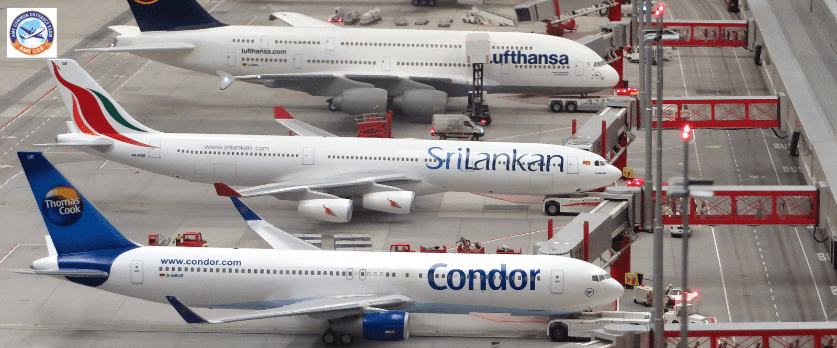An aviation engineering course is an educational program designed to provide students with a comprehensive understanding of the principles, theories, and practical skills involved in the design, development, maintenance, and operation of aircraft and aerospace systems. These courses aim to equip students with the knowledge and expertise required to pursue a career in the aviation industry. Here is an overview of what an aviation engineering course typically entails
Course Structure
Foundation Courses
- Mathematics and Physics Establishing a strong foundation in mathematical and physical principles, crucial for understanding aviation engineering concepts.
- Engineering Basics Introducing fundamental engineering concepts applicable to aviation.
Core Aviation Engineering Subjects
- Aerodynamics Studying the behavior of air and the forces acting on aircraft during flight.
- Aircraft Structures Understanding the design and construction of aircraft components for optimal strength and weight.
- Propulsion Systems Exploring aircraft propulsion methods, including jet engines and propellers.
- Avionics Covering electronic systems used in aircraft for communication, navigation, and control.
- Flight Dynamics and Control Analyzing the dynamics of aircraft motion and control systems.
Specialized Tracks
- Depending on the program, students may have the option to specialize in areas such as aeronautical engineering, aerospace engineering, avionics, or aircraft maintenance engineering.
Practical Training
- Laboratory Work Hands-on experiments and simulations to reinforce theoretical concepts.
- Project Work Collaborative or individual projects to apply engineering principles to real-world challenges.
Internship and Industry Exposure
- Many aviation engineering courses include mandatory internships or industrial training to provide students with practical experience in a professional setting.
Safety and Regulations
- Understanding aviation safety protocols, regulations, and compliance with industry standards.
Course Duration
- Bachelor’s Degree Typically a four-year program.
- Master’s Degree One to two additional years, depending on the specialization and program structure.
Eligibility Criteria
- For a bachelor’s degree, completion of high school or equivalent with a strong background in mathematics and physics (12th PCM).
- Master’s programs usually require a relevant bachelor’s degree in engineering or a related field.
Admission Process
- There are the institutes/colleges/universities who take students through entrance examination and there is an examination called AME CEE an entrance exam for the aviation aspirants who could this examination and get the admission in desired courses.
Career Opportunities
- Aerospace Engineer
- Aeronautical Engineer
- Avionics Engineer
- Aircraft Maintenance Engineer
- Research and Development Engineer in the Aviation Industry
- Aviation Consultant
Scope for Higher Studies
- Pursuing a master’s or Ph.D. in aerospace engineering, avionics, or a related field for advanced research and specialization.
Industry-Relevant Skills
- Strong analytical and problem-solving skills.
- Attention to detail and precision in work.
- Creativity in designing and improving aircraft systems.
- Effective communication skills for collaboration within a team.
To become an aircraft maintenance engineer you may could join AME engineering through AME COMMON ENTRANCE EXAM (AME CEE) this examination you may join AME engineering approved by DGCA, EASA or UGC.


